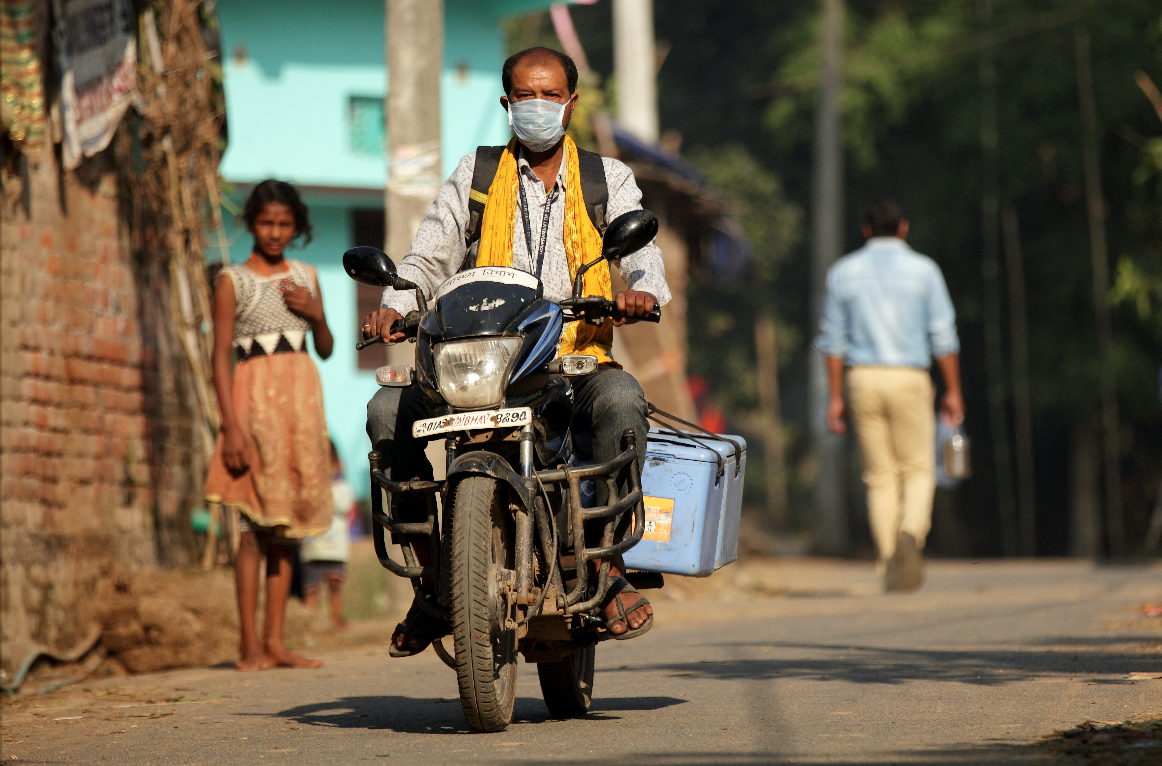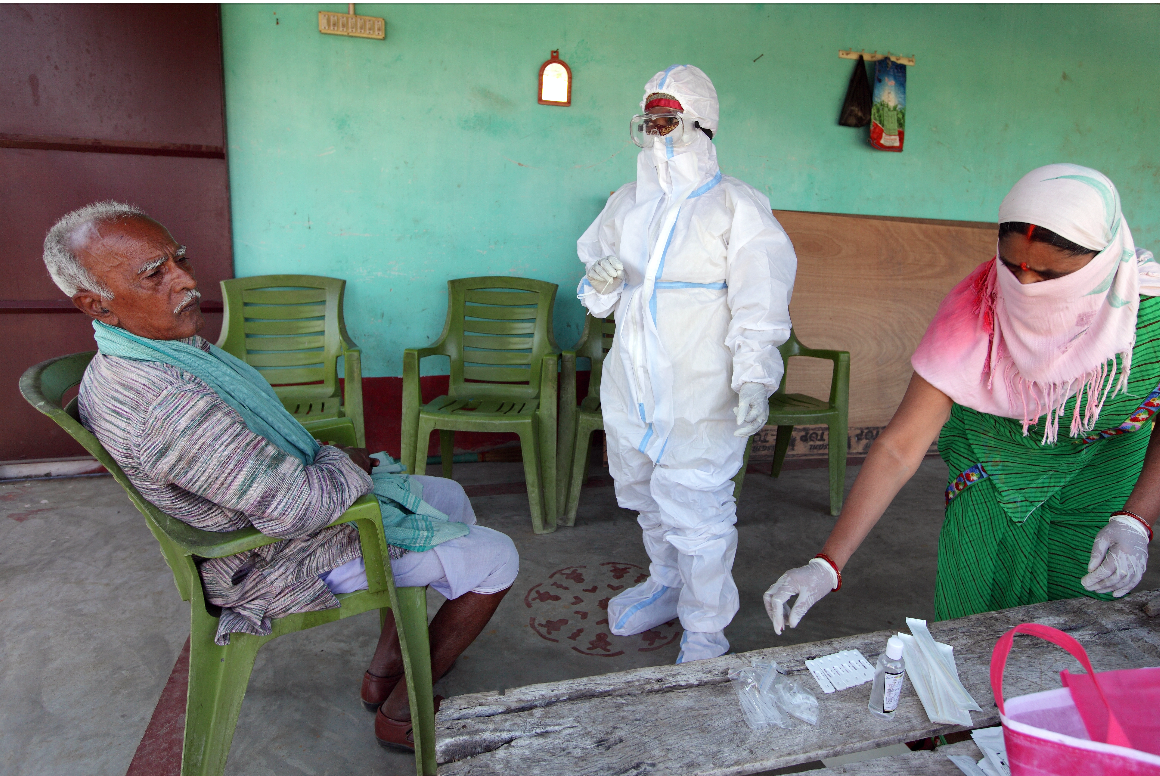As the COVID-19 pandemic worsens in India, with daily infections surpassing 300,000 for the 13th straight day, humanitarian organizations are urgently mobilizing resources and providing crucial medical care.
The humanitarian nonprofit CARE is in the process of opening seven makeshift health centers throughout the country to accommodate the surge in people who need oxygen and other therapies. The organization’s first health center opened over the weekend in the state of Bihar.
“The situation is unprecedented,” Deepmala Mahla, CARE’s vice president of humanitarian work, told Global Citizen. “Given the complexities of the population, its sheer scale and the scale of what we are seeing in terms of this outbreak, it’s frightening. Right now, it’s all hands on deck. The country is enduring multiple genomic strains, and it’s an onslaught of increasing caseloads and fatalities."
“The current wave, like most other crises, it’s naturally affecting the people who have less access to resources. They suffer much more,” she added. “But right now the health system is totally stretched so people of all backgrounds are really suffering.”
CARE completed the construction of its first 100-bed health center in a sports stadium over the weekend, Mahla said. Because the organization has been working in India for more than seven decades, it has been able to draw on institutional connections to equip the facility with supplies and staff it with local health workers.
The main supplies needed right now are oxygen, drug therapies, and personal protective equipment to further prevent COVID-19.
The health care sector in Bihar has struggled to handle the influx of infected people. Hospitals have run out of supplies and local governments have called on the army to dispatch extra doctors and nurses.
The crisis would be even worse, Mahla said, if it weren’t for the extraordinary efforts of nurses and doctors who are working around the clock to save lives in a vast country of 1.3 billion people.
“I have worked in many emergency contexts,” she said. “I have never seen the level of resolve and determination with which the health care workers are working right now. Even when the supplies are negligible, their determination and commitment is not affected at all.”
While the crisis in Bihar has been getting worse, India’s COVID-19 epicenters are in Maharashtra, Uttar Pradesh, and Karnataka, where current infections have exceeded 1 million in each state. In major Indian cities such as New Delhi, bodies from COVID-19 victims have overwhelmed crematoriums and disrupted traditional grieving and departure processes.
“There is a sense of fear, a feeling of despair and hopelessness,” Mahla said. “I do not know anybody in my personal or professional life who is not affected.”
Even as CARE works to open additional health centers, it’s coordinating the delivery of essential supplies to hospitals and facilities around the country.

The organization is also supporting people whose livelihoods have been disrupted over the past year, particularly migrant workers who have been left out of relief programs.
“The immediate lifesaving work is extremely critical and urgent,” Mahla said. “But to mitigate the impact that COVID has had on livelihoods and economies and mental health, we will be working to help communities recover, continuing our work on health, education, and livelihoods, supporting women and girls, and helping communities deal with disasters in the future.”
The Indian government is understandably focused on containing the death toll and minimizing the further spread of infections, but Mahla said that vaccination efforts cannot be sidelined.

With less than 2% of the population fully vaccinated, the country has a long way to go to achieve herd immunity via coronavirus vaccines. As part of its work, CARE is administering vaccines and has embarked on a campaign to combat India’s vaccine hesitancy.
“India is so big and so complicated, we do not have the same messaging across the country, but we tailor it according to the local reality,” Mahta said.
“The biggest hesitation is related to side effects,” she added. “On the positive side, vaccine hesitancy is not surging as feared, probably because of the devastating impact and disease burden.”